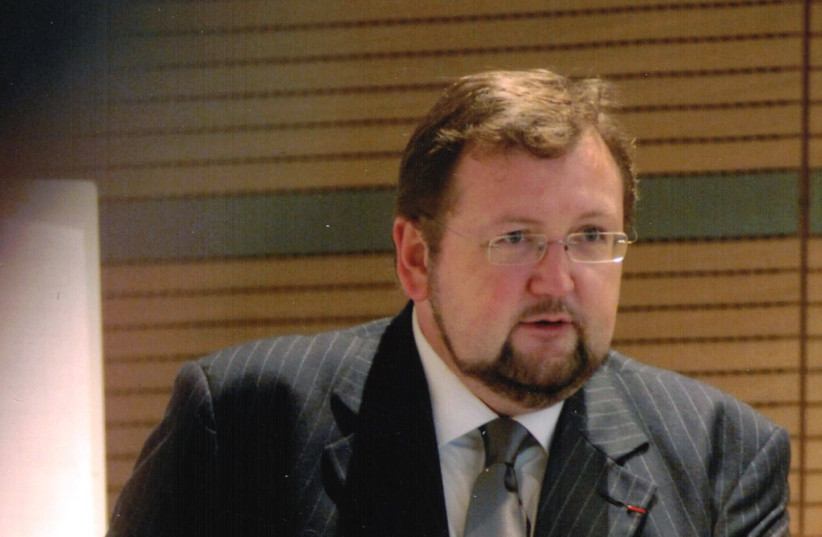(JTA) — A new association of egalitarian Jewish congregations has launched in Germany, in the latest consequence of a scandal that has been unfolding within German Judaism for nearly a year.
The Jewish-Liberal Egalitarian Union, or JLEV according to its German acronym, marks a split with the existing body representing liberal Judaism in Germany, the Union of Progressive Jews.
The two groups both represent non-Orthodox synagogues in Germany, but the UPJ was created as a subsidiary of the World Union of Progressive Judaism, based in the United Kingdom. The new group, on the other hand, is overseen by the Central Council of Jews in Germany, whose role includes distributing government funding to Jewish institutions.
“A liberal association under the umbrella of the Central Council strengthens the idea of diversity in unity,” a spokesman for the organization told JTA in explaining the motivation behind the move.
The crucial difference between the two groups, however, is not who oversees them but that JLEV has no association with Walter Homolka, the rabbi at the center of the ongoing scandal.

Homolka was a founder of the UPJ in 1997, as well as of several other German Jewish organizations including its progressive seminaries. Since allegations broke last May that he had abused his power as the rector of the liberal Abraham Geiger College rabbinical school, Homolka has stepped back from his many roles in German Jewish organizations.
But after the embattled rabbi declined to run for another term as UPJ chair in the last election in December, a new board was elected that, critics said, was friendly to Homolka and showed little sympathy for those who claimed they had been harmed by him.
“We feel we are not represented any more by the UPJ,” Rebecca Seidler, head of the liberal Jewish communities of Hanover and chair of the State Association of the Jewish Communities of Lower Saxony, told the Jewish Telegraphic Agency at the time.
New strict ethical code
Now, Seidler is a cofounder of the new organization, and her community is one of the nine to join it. The new group says it will offer adult education and youth programs. It also requires members to comply with a strict ethical code.
Seidler and other JLEV founders said in a statement that they determined it was “necessary to set up a separate umbrella organization” after the UPJ responded “in a strange way” to the accusations against Homolka.
“They trivialized, relativized and took a one-sided approach, failing to consider and pay attention to the critical voices of member communities,” the group’s statement said.
Exactly what it means for Germany to have two progressive Jewish congregational associations is uncertain.
The Germany split is not the first change in European progressive Jewish communities this week. Earlier, Britain’s liberal and Reform Jewish organizations merged into a new “Progressive Judaism” movement within the World Union of Progressive Judaism.
But while the group welcomed that development, a spokesperson told JTA in an email that it “isn’t making any comment at this time” about the changes in Germany.
It is estimated that, out of about 90,000 registered members of Jewish communities in Germany, about 5,000 affiliate with liberal or egalitarian congregations. There may be as many as 100,000 more people who identify as Jewish but don’t belong to a formal community.
The UPJ currently lists 32 member communities, including the nine defectors. It will continue to represent liberal communities across Germany — at least for now, and as long as communities choose to ally themselves with it.
“From an organizational logic, it does not make sense for communities to be members of both organizations,” the Central Council spokesperson told the JTA, adding that while the council has no legal obligation to support the UPJ, “as an organization of liberal Judaism, in which some member congregations of the Central Council are also members, it will continue to be supported according to the principles of the Central Council.”
Talks are underway about a formal funding agreement for JLEV.
As for the UPJ, concern about the competing organization appears to be slight.
“Every liberal Jew has the freedom to organize himself,” UPJ chair Irith Michelsohn told the Jewish Telegraphic Agency in an email, noting that she had known about the launch of the new group “for some time already.” She added, “There are no changes for us.”
